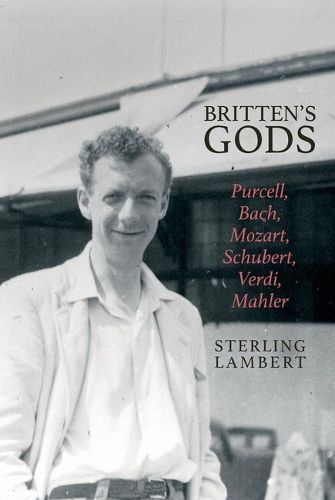Readings Newsletter
Become a Readings Member to make your shopping experience even easier.
Sign in or sign up for free!
You’re not far away from qualifying for FREE standard shipping within Australia
You’ve qualified for FREE standard shipping within Australia
The cart is loading…






Ebook available to libraries exclusively as part of the JSTOR Path to Open initiative.
In his views on the music of other composers, Benjamin Britten had strong preferences, and his particularly active life as a performer meant that these preferences were often expressed in his programming choices, in particular for his own Aldeburgh Festival. Six composers in particular (Purcell, Bach, Mozart, Schubert, Verdi and Mahler) received special attention and two others Verdi and Mahler) received as much as possible given the limitations of resources at the Festival.
He also showed his admiration for these composers in the way in which he allowed these programmed works to influence his own compositions. This book frames discussion of each composer and his influence around the relationship between a particular work by Britten and a particular one by the composer concerned that was performed by Britten at approximately the same time.
Thus, Britten's Second String Quartet (1945) is compared with Purcell's "Chacony in G minor". The chamber operas The Rape of Lucretia (1946) and Albert Herring (1947) owe much to Verdi's Otello and Falstaff. The song cycle "Winter Words" (1953) relates to Schubert's "Winterreise". War Requiem (1962) is influenced by Bach's two Passions. "Night Piece" for piano (1963) connects to the second "Nachtmusik" from Mahler's Seventh Symphony. Finally, parallels exist between the opera Death in Venice (1973) and Mozart's Idomeneo.
$9.00 standard shipping within Australia
FREE standard shipping within Australia for orders over $100.00
Express & International shipping calculated at checkout
Ebook available to libraries exclusively as part of the JSTOR Path to Open initiative.
In his views on the music of other composers, Benjamin Britten had strong preferences, and his particularly active life as a performer meant that these preferences were often expressed in his programming choices, in particular for his own Aldeburgh Festival. Six composers in particular (Purcell, Bach, Mozart, Schubert, Verdi and Mahler) received special attention and two others Verdi and Mahler) received as much as possible given the limitations of resources at the Festival.
He also showed his admiration for these composers in the way in which he allowed these programmed works to influence his own compositions. This book frames discussion of each composer and his influence around the relationship between a particular work by Britten and a particular one by the composer concerned that was performed by Britten at approximately the same time.
Thus, Britten's Second String Quartet (1945) is compared with Purcell's "Chacony in G minor". The chamber operas The Rape of Lucretia (1946) and Albert Herring (1947) owe much to Verdi's Otello and Falstaff. The song cycle "Winter Words" (1953) relates to Schubert's "Winterreise". War Requiem (1962) is influenced by Bach's two Passions. "Night Piece" for piano (1963) connects to the second "Nachtmusik" from Mahler's Seventh Symphony. Finally, parallels exist between the opera Death in Venice (1973) and Mozart's Idomeneo.